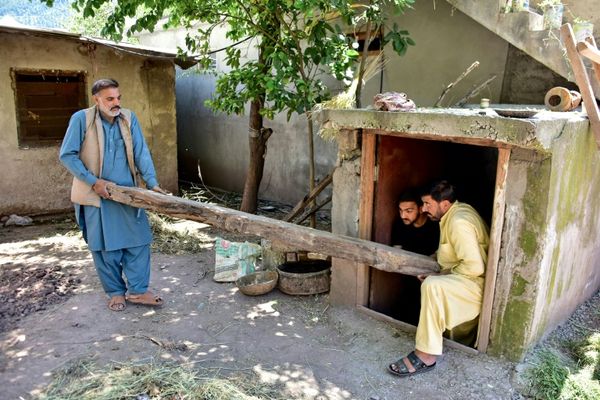SCOTLAND has a chance to make history and take a stand against “scaremongering and smears” towards the LGBT community as Holyrood prepares to vote on the final stage of Gender Recognition Reform.
The Scottish Greens have said this week will be “vital” for trans rights and equality as MSPs brace for two long days of debates during Stage 3 of legislative scrutiny on Tuesday and Wednesday.
Meanwhile, the Scottish Tories continued their push to have the Bill dropped or delayed, arguing that not enough time has been set aside to consider the 153 amendments to the Bill, claiming it could lead to a “travesty of democracy”.
The Gender Recognition Reform (Scotland) Act has been described as an "admin issue" by many transgender people who say the current process is lengthy, demeaning, and can be expensive.
The reforms would remove the medical requirement and panel process and instead allow trans people to self-identify.
The first stage of the reforms passed with 88 votes for Yes, 33 for No, four abstentions and four MSPs who did not vote, including Presiding Officer Alison Johnstone and Finance Secretary Kate Forbes, who is currently on maternity leave.
Nine SNP MSPs voted against, while two Tory MSPs, Jamie Greene and Dr Sandesh Gulhane, voted in support. All Scottish Green MSPs (7), LibDem (4) and the majority of Labour (21), barring Alex Rowley who did not register a vote, backed the reforms.

Ahead of the final stage of debate, MSPs have been allocated over nine hours to debate 153 amendments, grouped into 19 different sections. There are 13 Scottish Government amendments and 140 amendments from other MSPs in the chamber to be disposed of.
Maggie Chapman MSP, Scottish Greens equality spokesperson, said: "Gender Recognition Reform is a simple change that could make a big difference to trans people. It will remove some of the pain and trauma from a process that many trans people have told us they consider to be bureaucratic and demeaning.
"It is a vital reform, not just for the good it will do but also for the message it will send.
"By passing the Bill this week we can bring Scotland in line with international good practice, and be at the forefront of equality legislation in the UK. This is about giving people the recognition and dignity that they deserve, and that many of us just take for granted: to live as who they are.
"Our Parliament has the opportunity to make history and take a clear stand against the scaremongering, smears and disinformation that has characterised far too much of the debate.”
Chapman added that the party will “always stand” with trans Scots and the wider LGBT+ community. Gender Reform was one of the key strands of the Bute House agreement which solidified the SNP-Green co-operation deal.
It comes as the Scottish Tories argued that nine hours to debate the series of amendments means some will only be discussed for 15 minutes or less, and claimed a hard time limit will “shut down” discussions of amendments “relating to non-medical self-ID, and whether rapists and paedophiles can change sex while awaiting justice”.
Rachael Hamilton MSP, the Tories equalities spokesperson, said: “It is disgraceful that the Scottish Government are putting a time limit on amendments to such a crucial piece of legislation.
“The SNP and Labour should have seen sense and backed our calls to delay the last reading of this bill, to allow for full, reasoned debate on the concerns many of us have about protections for women and girls.”

“Rushing this through before Christmas is typical of the SNP’s attempts to railroad this legislation through parliament without proper scrutiny. Without the full debate that each of these 153 amendments merits, tomorrow (Tuesday) risks being a travesty of democracy,” she added.
It comes as the Muslim Council of Scotland wrote to Shona Robison, Cabinet Secretary for Social Justice who is sponsoring the reforms, to outline their concerns over self-ID.
“We request our government to invest further in the medical services for Transgender citizens so that their gender recognition process can be facilitated rather than handing our certificates and exposing the vulnerable to huge risk” Dr Muhammad Adrees, the group’s convener said.
At the same time, CREA, a feminist human rights organisation based in the Global South and led by women, wrote to MSPs and party leaders to affirm their support for the reforms.
“We write to you to express our concern about some of the ways the discussions about the Bill have been framed.
“In some cases, and without concrete evidence, these claims seem to frame legal gender recognition processes based on self-identification to be in opposition to the rights of women and their protection from violence,” the letter said.
UN special rapporteur Reem Alsalem previously claimed that Scotland’s self-ID plans would have “global significance” and allow predatory men to abuse the system, despite 18 countries already having the policy in place, including many in Europe.
CREA along with other feminist organisations write to @ScotParl in support of trans persons right to gender self identification #TransRightsAreAFeministIssue Read our full letter here: https://t.co/HFZEdWdmKO
— CREA (@ThinkCREA) December 17, 2022
CREA noted this in the letter, adding that her claims “misrepresent the impacts of this proposed legislative change towards upholding the rights of people of all genders”.
Elsewhere, numerous human rights experts have backed Scotland’s gender reforms as following “international best practice” and rejected claims that the rights of women and girls will be impacted.







